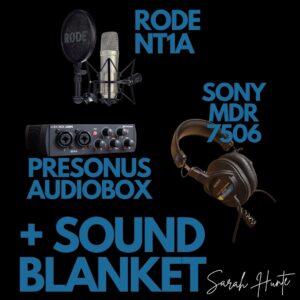This should be (and is) a little embarrassing for me to admit. But having been a professional of over 25 years, it wasn’t until relatively recently that I figured out all the trainings I’m required to completing each year at my full-time job were available for me to listen to as well as read. E-learning content that I can listen to has helped take the proverbial edge off my often pressure-filled workdays because it gives my vision and my brain a much-needed break, without compromising my need to learn. This is the beauty of e-learning to the disabled.
My Early Years – Learning Tenacity, but Working Hard, Not Smart
I’m someone who had horrible trouble learning how to read as a child, and the trauma of the loss of my right eye as an infant only compounded the fear and insecurity I carried around inside. I walked with my chin to my chest everywhere I went in my early years, not even swinging my arms as I walked. I felt invisible (and perhaps wanted to be) because I felt so unlovely and unsightly. My amazing and resilient Caribbean parents were committed to giving me a normal life. So the solution for my hardships with reading was simply to drill me at home with reading aloud (which was important to be able to do well back then) and sign me up for a reading competition where I’m told I placed in the top three. (I always say I think I might have suppressed this experience because I have absolutely no recollection of it at all…..trauma has a way of protecting the brain.)
I think this might be why I’m used to just plowing through things the hard way until I’m done. My early schools never did diagnose the dyslexia I grew to be sure I had only after three college and graduate degrees. All I knew was that I had to set aside inordinate amounts of time to complete reading assignments. (Despite countless speed-reading courses, I still read slowly when left to my own devices.) As I read, I found taking notes in the margin of my books not only helped me retain information, but it also helped me relax when I returned to the page, because I knew all I needed to do was read my hand-written interpretation of the text instead of wading through the often-dense paragraphs.
Learning to Cope in Adulthood
As an adult, I’ve developed many coping mechanisms that work to varying degrees. That said, it still took me way too long to realize that the trainings I was required to complete at work were available for me to listen to. WHO KNEW?! I thought. Why on earth would anything be in my life to actually make it easier?!
But if you’re not a big lover of reading, you learn in some other way. (It takes a while to figure out that you’re not an idiot – I’m just being transparent? This was certainly the case for me.) I’ve had to figure out that I am a kinetic, auditory, and visual learner. During the 14 years I studied piano, I realized that it wasn’t until my hands remembered where to go that I began to sound like I had been practicing at all. Sight-reading music was just as miserable an experience as reading English aloud. (I had to figure out the two were engaging the same part of my brain (which evidently didn’t like to be engaged).)
In college, despite several hours of practice each week, I would sound as if I wasn’t practicing at all. Each week, I would appear for my lesson where my professor would incredulously ask whether I had been practicing because I sounded so awful. It wasn’t until the sheet music became internalized and began to flow through my hands, without my vision or my mind being engaged to read it that I began to sound like a pianist. Suddenly, after nearly 3 months of tirelessly pounding the music into myself, something would shift, and I would go from sounding “drunk” to sounding like I had the many years of training that I indeed had.
I learned that I was an auditory and visual learning through my love for documentaries as a young person. Somehow the images and the sound of the spoken words stuck with me so much more than when I had to read them to myself. I never realized that I found all the reading I had to do literally exhausting. As I said, perhaps I was used to being exhausted and was willing to pay that price in order to get wherever it was I was trying to go.
Waking up to Working Smart, Not Hard – E-learning to the disabled
Now, I’m learning the fine art of working smart not hard. I finally gave myself a break and invested in Audible in recent years and have been so grateful I did. Meanwhile, listening to the audio versions of the trainings I have to complete for my full-time job has been a tremendous help. So much so that I wonder what my academic life would have been like if some well-designed e-learning to the disabled might have been made available to me all those years ago in England. How much would I have been able to better absorb and comprehend my work? Instead of having to worry about getting the words read, now all I would have had to do is ensure I fully grasped the concepts and could articulate them in an exam.
There’s no doubt that I’ve learned great resilience and tenacity from the hardships and failures I experienced during my academic career. But a part of me has to wonder whether there would have been at least a little less anxiety and a whole lot less self-doubt riddling every part of my young mind if some e-learning content had been made readily available to me, especially e-learning to the disabled.
As I’ve said, this only recently occurred to me. So I thought I would share it with all the awesome e-learning designers I’m connected with. Thank you for what you do. Be encouraged. You bring great, great value to all the younger versions of me out there, and indeed to all the adult professionals who, like me, are grateful to get a break in the form of an engaging and educational training video once in a while.


